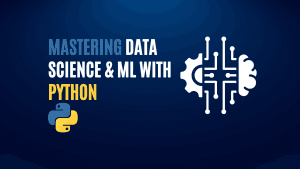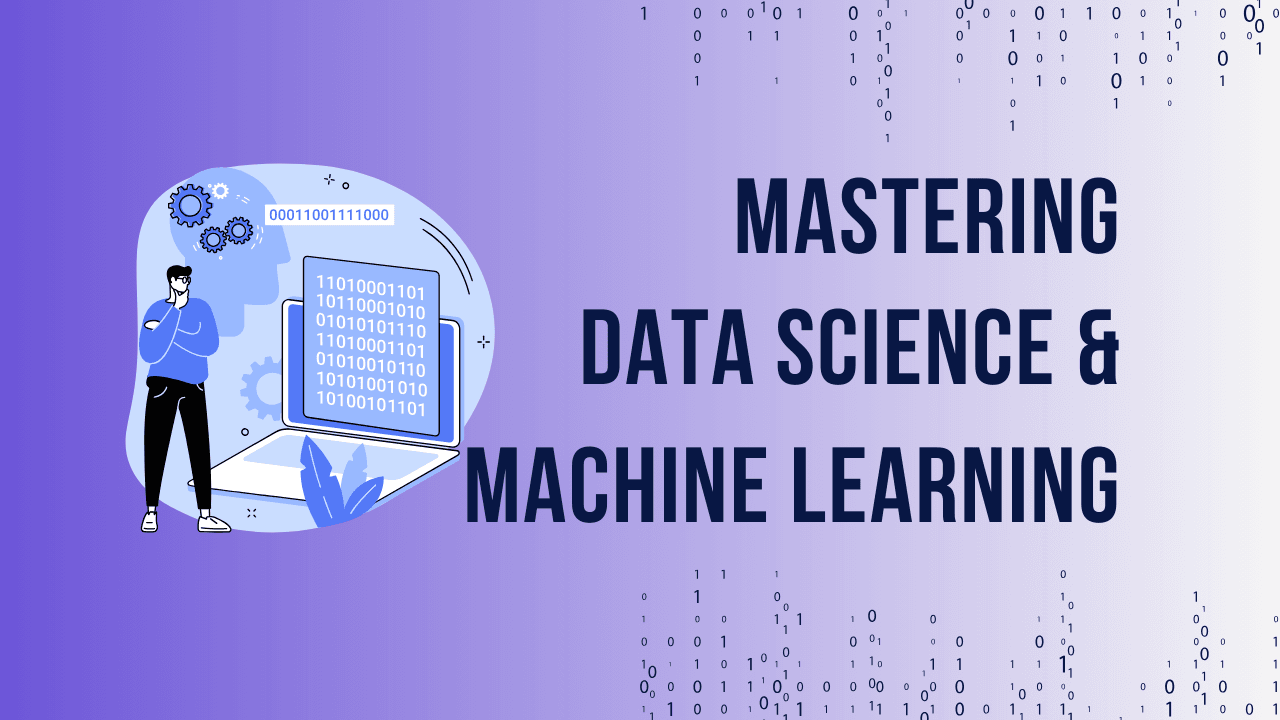Table of Contents
Toggle1. Introduction
1.1 Overview of Data Science Behavioral Interviews
Data science behavioral interviews focus on assessing a candidate’s soft skills—such as problem-solving, communication, and teamwork—through scenario-based questions. Unlike technical interviews, which evaluate your ability to code or analyze data, behavioral interviews aim to understand how you operate in a work environment and handle real-life challenges.
1.2 Why Behavioral Interviews Matter in Data Science
Behavioral interviews are critical in data science roles because they provide insight into how a candidate approaches problem-solving and collaboration in a business setting. In many data science jobs, your ability to work well in a team and communicate complex information effectively is just as important as your technical skills.
Ready to take you Data Science and Machine Learning skills to the next level? Check out our comprehensive Mastering Data Science and ML with Python course.
2. Key Competencies Evaluated
2.1 Problem-Solving and Analytical Thinking
Data science roles require strong problem-solving skills to navigate complex data sets and generate actionable insights. Behavioral questions in this area assess your approach to tackling challenges and finding solutions.
2.2 Adaptability and Flexibility
Data science projects often require quick pivots in strategy due to changing business goals or new data. Employers will assess how adaptable you are in situations that demand flexibility.
2.3 Communication Skills
You’ll need to communicate your findings and data insights to non-technical stakeholders. Strong communication skills help translate complex data into understandable terms.
2.4 Collaboration and Teamwork
Data science work is rarely done in isolation. You’ll be expected to collaborate with product teams, engineers, and business leaders. Interviewers want to see how you function as part of a larger team.
2.5 Time Management
Handling multiple projects and deadlines is part of a data science role. Behavioral questions here explore how you prioritize tasks and manage your time efficiently.
Ready to take you Data Science and Machine Learning skills to the next level? Check out our comprehensive Mastering Data Science and ML with Python course.
3. Common Behavioral Questions
3.1 Tell Me About a Time You Solved a Difficult Problem
This question focuses on your problem-solving process. Be prepared to discuss a challenging situation, how you approached the problem, and the outcome.
3.2 Describe a Situation Where You Worked in a Team
This question helps the interviewer assess your teamwork and collaboration skills. Focus on the dynamics of working in a group and how you contributed to the team’s success.
3.3 How Do You Handle Stress or Pressure?
Stress management is crucial in fast-paced roles. Answer by sharing a specific example where you were under pressure and how you maintained focus.
3.4 Give an Example of a Time You Failed and How You Handled It
Interviewers use this question to see how you respond to setbacks. Acknowledge your failure and emphasize the lessons you learned.
3.5 Describe a Time You Had to Learn a New Skill Quickly
Learning agility is important in data science, especially given the fast-paced evolution of tools and technologies. This question evaluates your ability to adapt and learn.
4. Answering Behavioral Questions Effectively
4.1 The STAR Method
The STAR (Situation, Task, Action, Result) method is a structured approach to answering behavioral questions. It helps you provide clear and concise answers by breaking down your response into four parts.
4.2 Structuring Your Answers with Context
When using the STAR method, providing context is essential. Describe the situation and the challenge, then outline your role before diving into your actions and the outcomes.
5. Examples of Strong Behavioral Answers
5.1 Example for Problem-Solving
“In my previous role, we faced a challenge with data quality. I took the initiative to develop a data-cleaning pipeline that reduced errors by 30%. This improved our reporting accuracy and enhanced decision-making for the team.”
5.2 Example for Teamwork
“During a project, we had to collaborate with the engineering team to implement an AI model. I facilitated communication between both teams and ensured everyone was aligned with the project goals, leading to successful deployment ahead of schedule.”
5.3 Example for Handling Stress
“In a high-pressure project, I was responsible for delivering an analysis in just 48 hours. I managed my time by breaking down tasks and prioritizing essential steps. We successfully completed the project with actionable insights for the client.”
Ready to take you Data Science and Machine Learning skills to the next level? Check out our comprehensive Mastering Data Science and ML with Python course.
6. Expert Insights
6.1 What Recruiters Look for in Data Science Candidates
Recruiters in data science roles seek candidates who exhibit a balance of technical proficiency and behavioral competencies. They want to see candidates who can solve complex problems while working well in a team.
6.2 Advice from Industry Experts
Experts recommend preparing by practicing behavioral questions, especially focusing on scenarios that demonstrate leadership, adaptability, and critical thinking.
Ready to take you Data Science and Machine Learning skills to the next level? Check out our comprehensive Mastering Data Science and ML with Python course.
7. Practical Applications for Behavioral Skills
7.1 How These Skills Apply in Real Data Science Projects
In real-world data science projects, you will often face challenges that require collaboration, fast learning, and clear communication with various teams. Demonstrating your behavioral skills can give you an edge in the workplace.
8. Preparing for Behavioral Interviews
8.1 Researching the Company and Role
Before any interview, thoroughly research the company and its culture. This will help you tailor your answers to the specific behavioral traits they are looking for.
8.2 Practicing Your Responses
Rehearse your answers to common behavioral questions using the STAR method. Practice with a friend or mentor to improve your confidence.
Our Students Testimonials:
9. Future of Behavioral Interviews in Data Science
9.1 Emerging Trends in Data Science Interviews
Behavioral interviews are increasingly focusing on emotional intelligence, collaboration, and adaptability. Companies are placing more emphasis on how candidates approach problems rather than just the solutions.
Our Students Testimonials:
10. Conclusion
10.1 Final Thoughts and Takeaways
Behavioral interviews in data science focus on your ability to solve problems, collaborate, and adapt to new challenges. By preparing using the STAR method and practicing common questions, you can present yourself as a well-rounded candidate.



